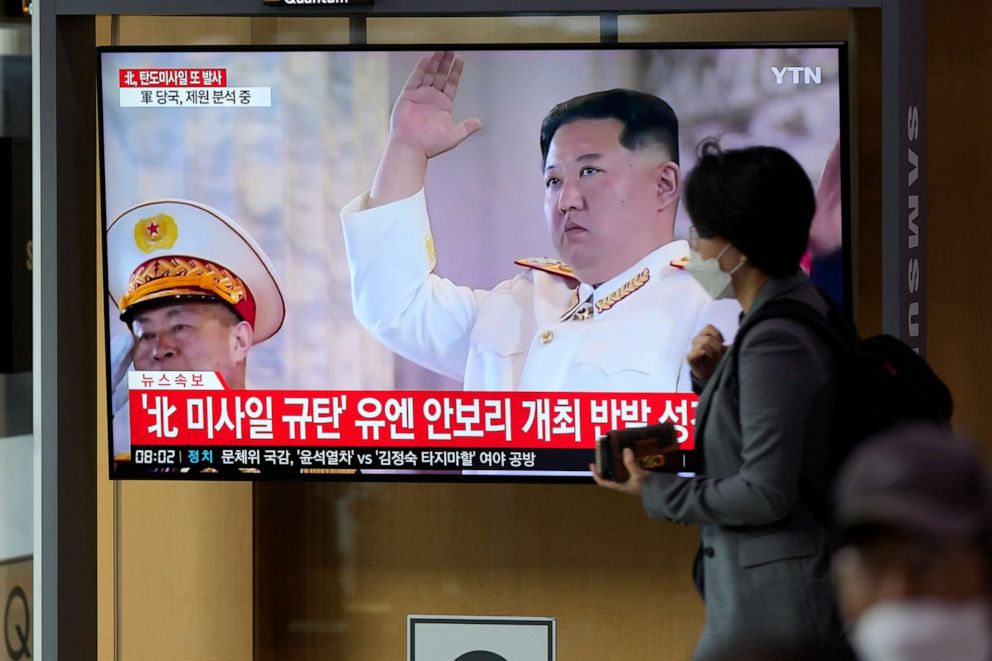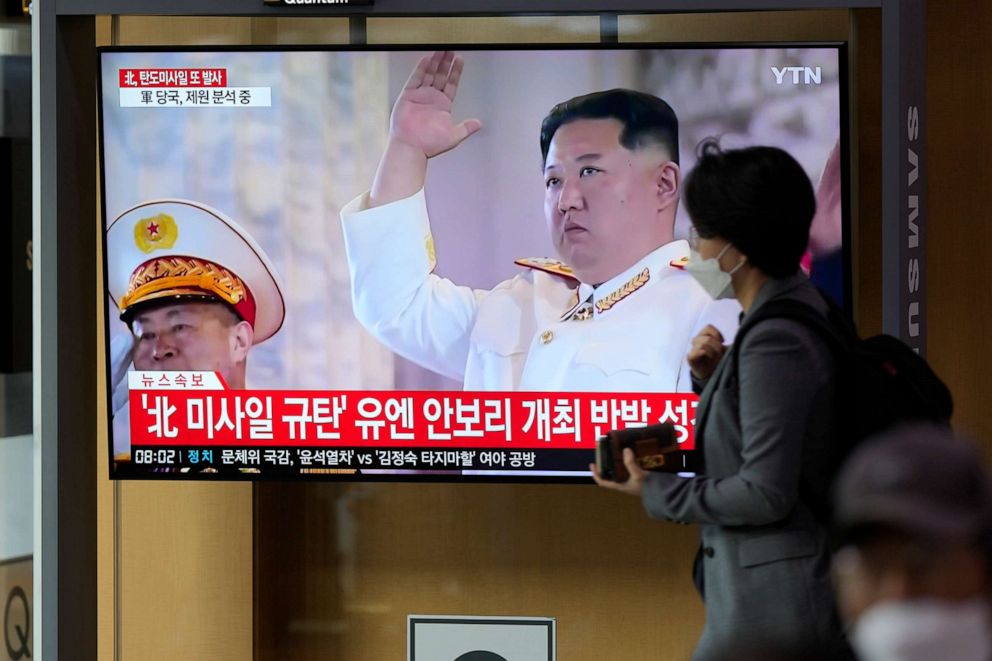SEOUL, South Korea — North Korea flew warplanes in the skies of the Korean peninsula less than 12 hours after showcasing a series of short-range ballistic missiles Thursday. North Korea had launched ballistic missiles six times in the last two weeks.
“Twelve North Korean warplanes flew in squadron this afternoon in the South Korean side of the special surveillance line, to stage a protest,” South Korea’s Joint Chiefs of Staff told ABC News, referring to Pyongyang’s explicit criticism against the U.S.-South Korea joint military exercise in the waters of the Korean peninsula.

A TV screen showing a news program reporting about North Korea’s missile launch with file footage of North Korean leader Kim Jong Un, is seen at the Seoul Railway Station in Seoul, South Korea, on Oct. 6, 2022.
Lee Jin-man/AP
There were eight fighter planes and four bombers from North Korea flying in formation and conducting air-to-ground firing drills. South Korea’s military promptly mobilized 30 F-15K fighters which confronted the North Korean jets in the air for approximately an hour according to South Korea’s military.
“Reportedly, North Korea’s Air Force has not been able to train properly due to the scarcity of fuel, it is extremely unusual for North Korea to have flown 8 fighter jets and 4 bombers,” Cheong Seong-Chang, director of the Center for North Korean Studies at Seoul-based Sejong Institute, told ABC News.

In this photo provided by South Korean Presidential Office, South Korean President Yoon Suk Yeol talks on the phone with Japanese Prime Minister Fumio Kishida in Seoul, South Korea, on Oct. 6, 2022.
South Korea Presidential Office via AP
The rare appearance of North Korean warplanes came after North Korea’s Foreign Ministry released a statement to blast the U.S. for escalating military tensions in the Korean peninsula by deploying the carrier task force. The nuclear-powered aircraft carrier USS Ronald Reagan was carrying out joint military drills in waters off the Korean peninsula with allies South Korea and Japan in September, and was redeployed as North Korea test-fired missiles almost every other day.
Instead of halting military actions, North Korea launched another set of short-range ballistic missiles off Pyongyang Thursday morning.

A man walks past a television report showing a news broadcast with file footage of a North Korean missile test, at a railway station in Seoul on Oct. 6, 2022.
Anthony Wallace/AFP via Getty Images
North Korea tested its ballistic missile capability on six different occasions in the last two weeks since Sep. 25. They were mostly short-range ballistic missiles but an intermediate-range ballistic missile flew over the Japanese territory Tuesday that led to a warning alert. The U.S. and South Korea’s combined forces have been responding to Pyongyang’s provocative actions accordingly.
“Flying warplanes was brute even for North Korea, it is different from their usual stance when they stayed low while a U.S. aircraft carrier was in the region,” Park Jaewan, professor of Security Strategy at Kookmin University, told ABC News. “North Korea’s warplanes don’t pose a major threat to the region considering the greater superiority the U.S. and South Korea have in the air force.”




